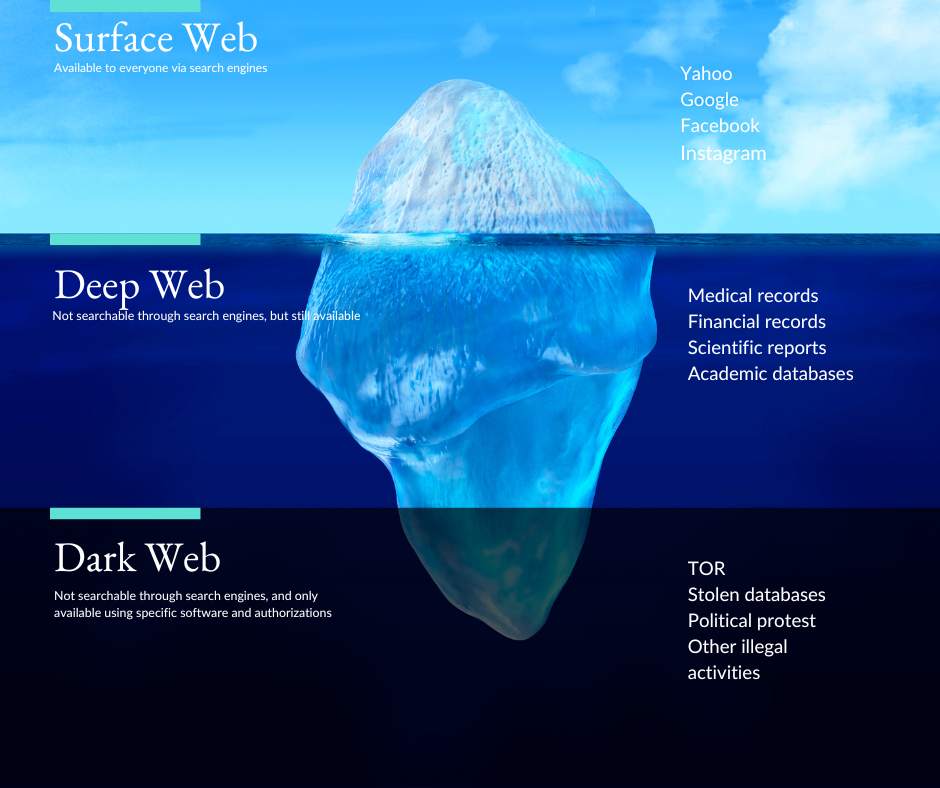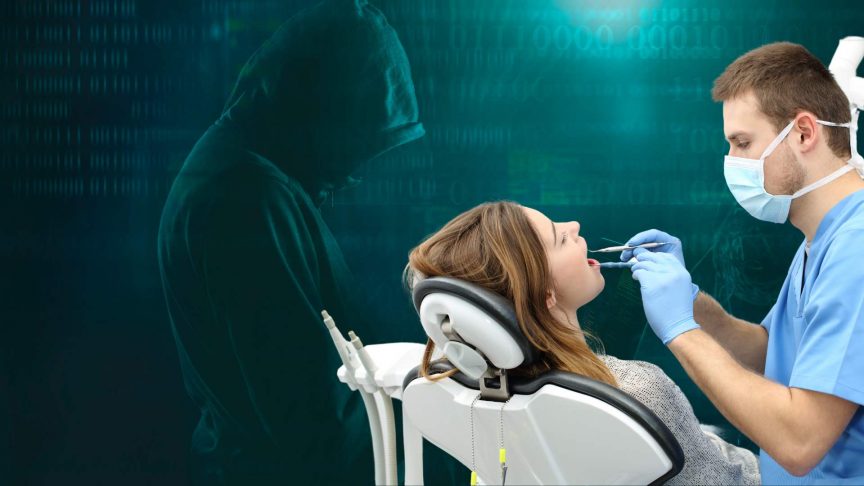Cybersecurity for Dentists is becoming more challenging. In the fast-paced digital age, it’s increasingly crucial for every professional, including those in the dental sector, to grasp the workings of the internet – and particularly the “Dark Web.”
Even if you might never venture into these obscure corners of the internet, understanding the Dark Web’s implications can be essential for your dental practice’s security and integrity.
What is the Dark Web?
In essence, the internet is divided into three layers. The first layer, the Surface Web, comprises the internet we’re all familiar with — the part indexed by standard search engines like Google and Bing.
Below this is the Deep Web, an expansive digital space comprising all the web pages not indexed by regular search engines. This includes your email inboxes, online banking details, subscription-based content, and medical records – including dental health records.
Finally, beneath all of this is the Dark Web. This part of the internet is intentionally hidden and can only be accessed using special software, such as Tor, which anonymizes the identities of its users. The Dark Web is notoriously known for its illicit activities, including the selling of illegal goods, and unfortunately, stolen data.

Why Should Dentists Care About the Dark Web?
It’s important to stress that most dentists and their practices will never directly interact with the Dark Web. So, why should dental professionals concern themselves with it? The main reason: the trade of stolen digital data.
Dental practices, like any healthcare provider, hold sensitive patient data, such as medical histories, social insurance/security numbers, and billing information.
This data is a prime target for cybercriminals who, if they successfully breach your data security measures, can sell your patients’ private information on the Dark Web.
This can lead to devastating consequences, including identity theft and financial fraud, damaging your patients’ lives and your practice’s reputation.
Protecting Your Practice
With the rise of sophisticated hacking tools, it’s increasingly important for dental practices to fortify their cybersecurity measures.
Here are some tips:
- Educate Your Staff: The human factor is often the weakest link in cybersecurity. Ensure your staff understands the importance of security, detecting phishing attempts, and handling sensitive data securely. Dental cybersecurity training is available.
- Implement Strong Password Policies: Passwords should be complex and unique for each account. Consider using a password manager for your practice.
- Keep Software Updated: Ensure that all of your systems, including operating systems, practice management software, and anti-virus software, are up to date and professionally monitored. Regular updates typically include patches for recently discovered security vulnerabilities.
- Regular Backups: Ensure you have regular backups of all your data. Test the backups with regular fire drills. This is essential for recovery in the event of data loss.
- Encrypt Data: Encryption translates data into another form, or code so that only people with access to a secret key can read it. All sensitive data, especially patient information, should be encrypted.
- Engage a Professional: It can be worth hiring a cybersecurity expert or service to help protect your practice and monitor for potential threats, including monitoring the Dark Web for your data.
While the Dark Web might seem like a distant, irrelevant entity to the dental world, the implications of data breaches and the subsequent sale of private information on such platforms should not be ignored.
By understanding its workings and taking proactive measures, you can significantly bolster your practice’s defense against cyber threats, ensuring the safety and trust of your patients.

